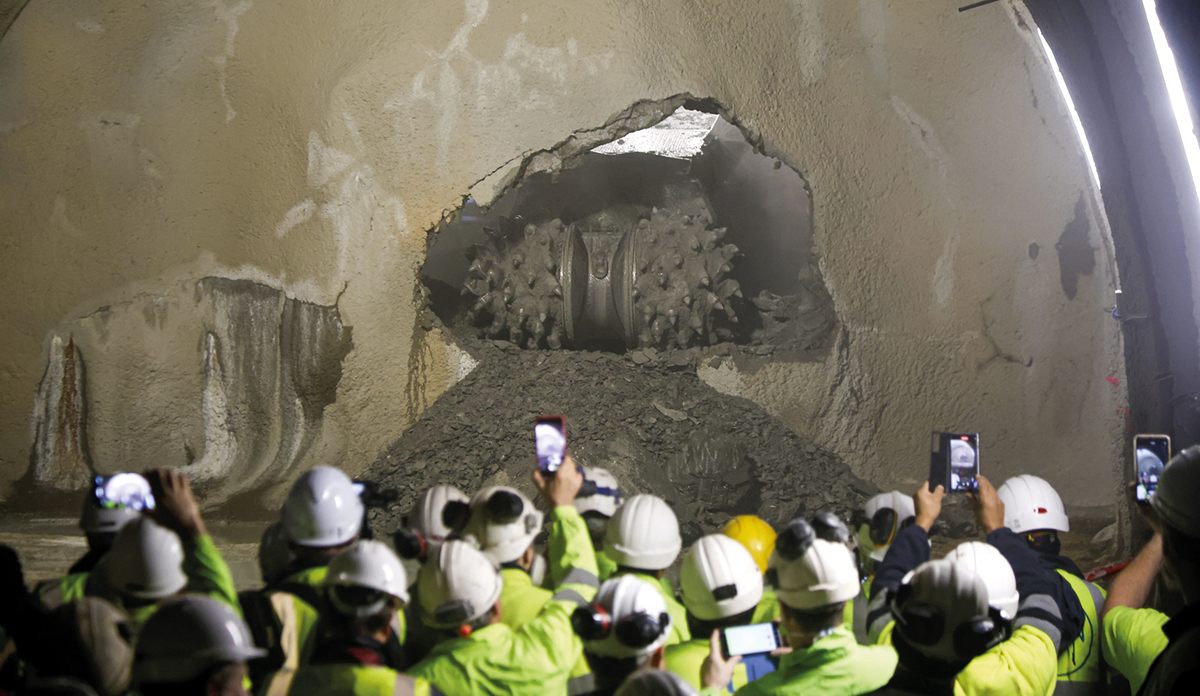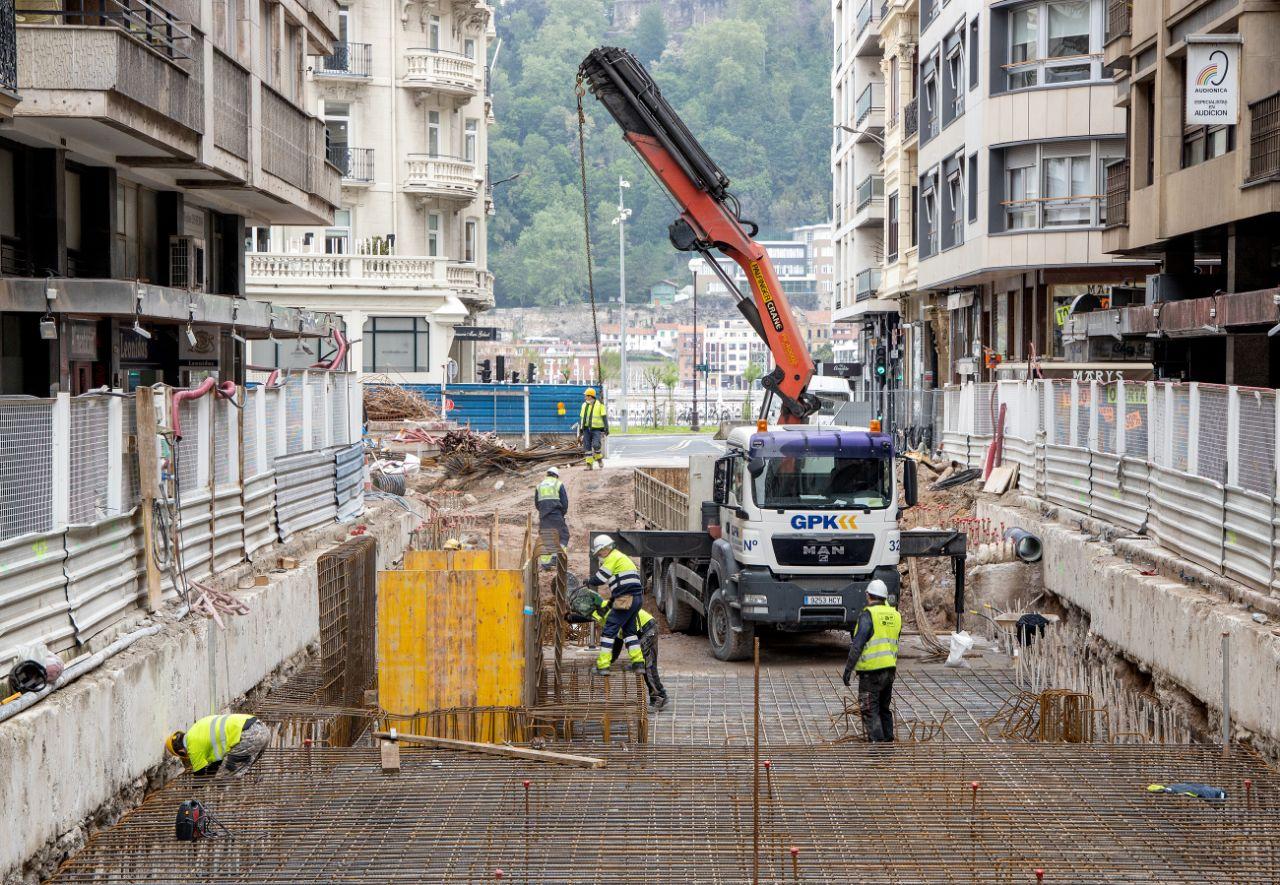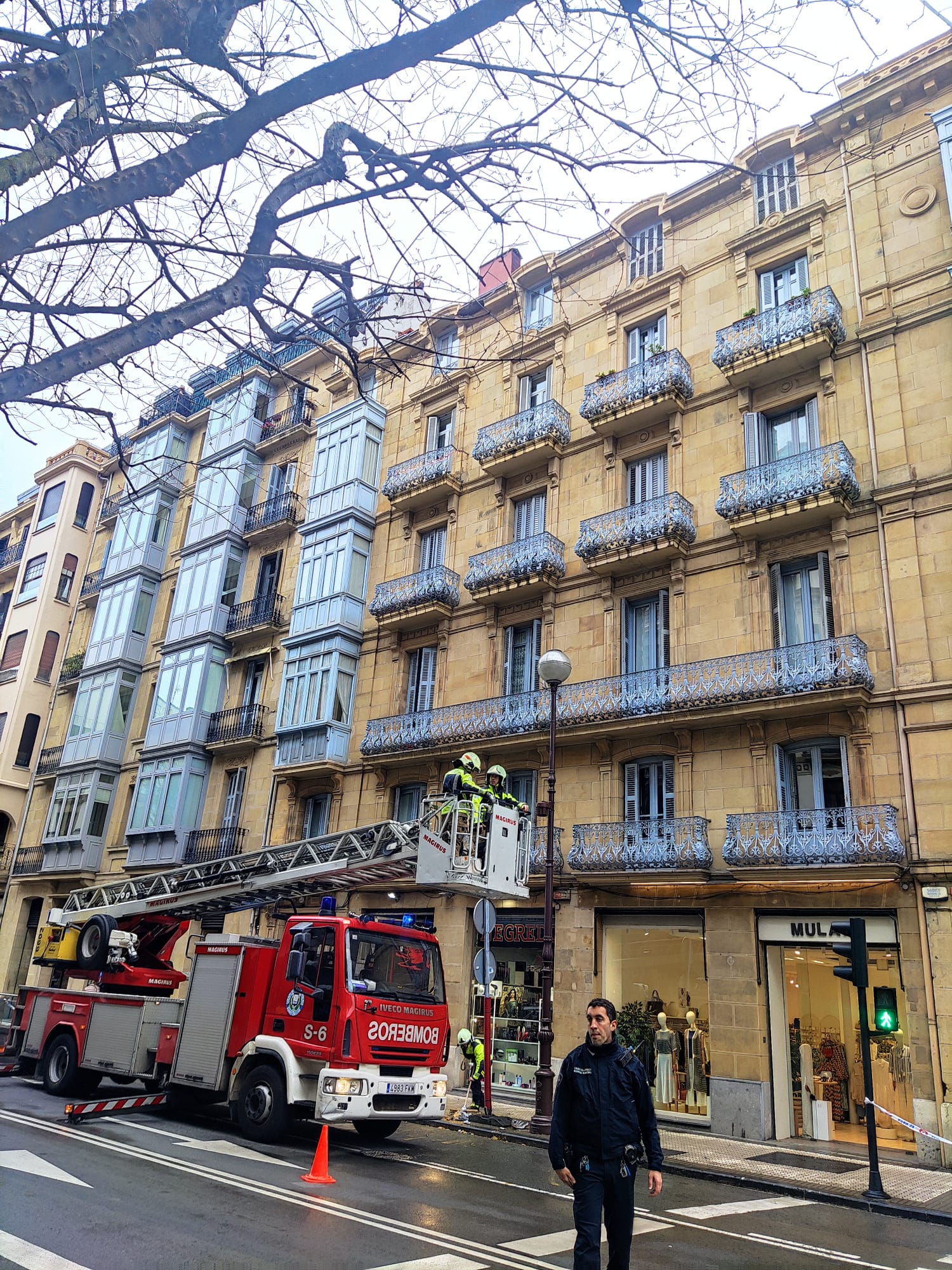Satorralaia announces 8,916 signatures calling for the halt of the San Sebastián metro intern
- The movement of the neighbors Satorralaia to stop the transit of the metro has presented at noon on Wednesday at the City Hall a letter addressed to the Mayor of San Sebastián, Eneko Goia, accompanied by 8,916 signatures of San Sebastián residents. They asked him to stop the transit of the metro, to open a participatory process around the transport model that San Sebastian needs, and to carry out a popular consultation. "They have asked the City Council to consider the demands of the citizens and change their behavior."

In their call to the Mayor, they stressed that "the City Council cannot ignore the obvious social unrest and disagreement that the issue of the Metro intern generates among the citizens of the city, nor the suspense that this infrastructure has received in the recent survey carried out by the Provincial Council of Gipuzkoa".
The letter reminds them that on February 9, 2016, they met with Mayor Eneko Goia to open avenues for citizen participation in the Metro intern case and hold a popular consultation to demand the commitment of the City Council. "The Mayor replied that the City Council has no competence in this matter, although he promised to transmit to the Basque Government the request that we made to him to open up channels for citizen participation. However, all the requests we have made to the institutions have gone to the trash and the Government continues to implement the project in a totally enforceable way, without fulfilling any commitment to open channels of citizen participation," they say.
The letter, which can be read in its entirety below, states that the Metro intern cannot be "forcibly imposed." They denounce as "unacceptable the way in which he has recently assigned construction works, without the project having the consent of Kosten and without awaiting the ruling of the Superior Court of the Basque Country on the Environmental Impact Statement".
"We find it reprehensible that the City Council renounces the public debate and gives all the facilities for the continuation of the project, as well as the use of false reasons and incorrect arguments that are not corrected," they said in a press conference.
Calls in Antigua and conference in Bidebi
In the next few days in the neighborhood of Antigua, Satorralaia has organized two initiatives with the aim of stimulating the movement against the intern of the Metro:
-Saturday, June 17:In Calle Matia there will be a proclamation of the street and the distribution of information. The departure of: 12:00 by the church.
-Tuesday, June 20th: Assembly at 18:00 Sert Plazan.l
-Wednesday the 21st:Informative talk in Bidebi by the workers’ association “Kurpil” of Satorralaia and Dbus.
Letter to the Mayor of El Alto
The movement of the Satorralaia neighbours to stop the Metro intern presents this paper, together with 8,916 signatures of Donostia-San Sebastián,[1] which require the stop of the Metro intern, the opening of a participatory process around the transport model that Donostia-San Sebastián needs, and a popular consultation.
According to the Informative Research (“Informative Study”), it is evident that this project affects San Sebastian in a particularly pronounced way, in the different key areas: the physical impact of the infrastructure on the goods and rights it would cause, as well as those caused by the municipal sanitation, drainage, water supply, public lighting, traffic light and communication systems; also, the impact on several houses and buildings located on or near the route of the infrastructure is responsible (the impact of the project on the pre-construction of the 311 strip of land, not forgetting the impact of the construction of a road map). On the other hand, the effects that the Metro intern would have on the public transport system of the city of Dbus, as well as on urban planning in San Sebastián, are noteworthy.
The City Council of which we preside cannot remain ignorant of the social unrest and disagreement that the Metro intern’s affair generates among the citizens of the city. Among other things, the presentation of more than 400 allegations to the project; the lodging of appeals; the organization of mobilizations, informative talks and street actions; the launch of the manifesto signed by more than 70 personalities dedicated to different areas of society; the stoppage of the Metro-Pasante and the opening of a participatory decision-making process around the transport model that San Sebastián needs, as well as the collection of thousands of signatures to ask us to carry out a popular consultation in San Sebastián; the installation of banners in the balconies of the houses and the recent application of the Cartagena Cartagena 8.
On February 9, 2016, a delegation of this neighborhood movement met with Mayor Eneko Goia to open avenues for citizen participation in the Metro intern case and to request the commitment of the City Hall to conduct a popular consultation using the municipal regulation of popular consultations. The Mayor replied that the City Council has no competence in this matter, although he promised to transmit to the Government the request we made to him to open up channels for citizen participation. However, all the requests we have made to the institutions have gone to the trash and the Government continues to implement the project in a totally enforceable way, without fulfilling any commitment to open up avenues for citizen participation.
The Basque Government cannot impose the Metro intern by force. In addition, it is unacceptable how he has recently assigned construction works without the project having the consent of Kosten and without waiting for the ruling of the Superior Court of the Basque Country on the Environmental Impact Statement -- it is noteworthy that a judicial appeal that questions its effectiveness has been under way since last December.
As far as the City Council is concerned, we find it reprehensible to give up the public debate and to facilitate the continuation of the project, as well as to use false reasons and incorrect arguments that are not corrected: when the intern of Metro hides the pernicious effects that it would cause on Dbus, when he silences the great impact that the construction works of this infrastructure would have on the urban center, or when he makes obvious marketing statements about the supposed contribution that Metro would make against climate change -- when he knows that this infrastructure would accelerate by car, according to the 5-1% of the governments that are going to make in the city.Finally, we would like to point out that it is false that the central station of the EuskoTren de Amara should be eliminated in order to increase the frequencies of the Topo: in fact, with the current facilities of the Easo station, train frequencies of 7’5 minutes are allowed, that is, the same frequency predicted in the Metro-Pasante project, so that we denounce the use of a false pretext to demolish the Easo station, which offers excellent access to the city: the same frequency that is foreseen in the Metro-Pasante project, with the aim of financing a project of 30 million euros of economic benefit and of the Easo. The “phantom” station of Altea has revealed, on the other hand, that this infrastructure does not even remotely fulfill the predictions of its drivers.
We insist – and we will never tire of repeating this – that the Metro intern’s project must be stopped and a participatory process of debate and decision must be opened on the transport model that suits San Sebastian. This issue requires the promotion of full and direct citizen participation, since the people directly affected by the project are residents of San Sebastián. Instead of imposing a single “solution” without publicly debated and agreed diagnoses, it is necessary to evaluate the different proposals and alternative strategies that exist to improve public transport – the current Sustainable Mobility Plan 2008-2024 of San Sebastian, for example, does not foresee in any way the construction of a Metro intern – so that the debate is transparent and the decisions are made in an informed and free manner. The requirement of this petition requires no more than political will.
To communicate the answer to this call, we ask the City Council to contact:
San Sebastian, 14 June 2017.
Satorralaia plataformak Donostiako Metroaren Mirakontxa-Easo zatiko lanek “%164ko gainkostua” izan dutela salatu zuen joan den astean, eta, horren harira, EH Bilduk gainkostu hori argitzeko eskatu du, Eusko Legebiltzarrean erregistratutako galdera sorta baten bidez.
Satorralaia plataformak eman du gainkostuaren berri, informazioa Jaurlaritzari eskatutako txosten batetik aterata. Donostiako metroaren Mirakontxa-Easo zatiaren lanak 53 milioi eurotan esleitu ziren, eta egungo aurrekontua 139,4 milioi eurokoa da. Donostiako metro-pasantearen... [+]





















